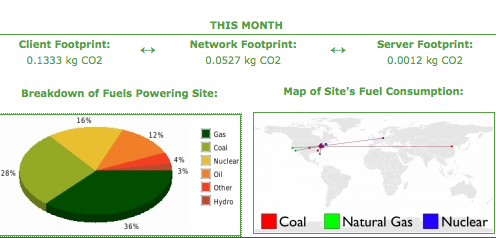We’ve seen a few sites attempt to help turn the web green, but most of them have been little more than gimmicks. Blackle purports to conserve energy by offering a “black” version of Google, which it says uses less energy than the engine’s standard white. But Google has gone on to say that black may actually increase the amount of energy consumed by visitors (of course, this didn’t stop Google Israel from turning its site black in honor of Earth Hour).
Today, Y Combinator startup CO2Stats has launched a search engine that aspires to be truly green. Greenseng (sounds like Ginseng) is a standard search engine, pulling results from Google’s Custom Search to produce results. But instead of relying on a dubious method of energy conservation, CO2Stats measures the amount of energy used by its servers and the computers of its users and purchases renewable energy certificates (similar to carbon credits) to offset the environmental toll.
CO2Stats CTO Alex Wissner-Gross says that Greenseng isn’t meant to generate revenue though advertising. Instead, the site is using proceeds from its certification business that allows websites to purchase renewable energy certificates in return for a badge that labels them as “Green Certified”.
But while Greenseng may not directly be earning any money, it may help CO2Stats pull in a slew of new customers. In its next iteration, the site will be using Yahoo’s powerful BOSS search API to incorporate some of its own data. Users will be able to see the environmental footprint of each site in their search results with data pulled from CO2Stats, which may give companies more of an incentive to get Green Certified.

Buying credits to offset seach engine usage isn’t a new idea. In April we wrote about EcoCho, a search engine wrapper for Google and Yahoo that promises to plant “up to two trees” for every 1,000 searches on the site (we noted that zero could fall within that definition). Only a week after launching, Google pulled the site from its advertising partnership – not a good sign, though it didn’t specify the details.
